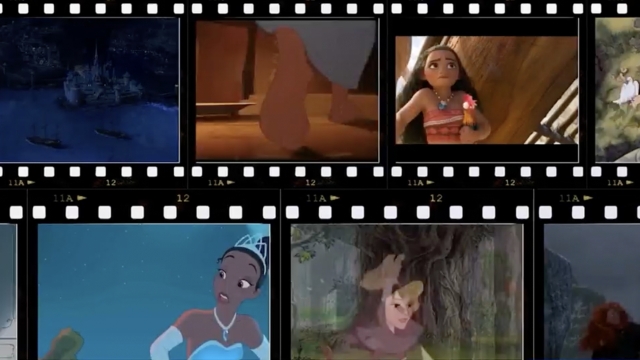With their big eyes, fair skin and teeny tiny, physically improbable waists, Disney princesses have long been studied and criticized for negatively affecting the self-esteem of young girls.
But a new study from the University of California, Davis, found that it's not as simple as you'd think.
"Thin or not," researchers found that Disney princesses did not harm kids' sense of self-esteem and body image.
The study published by the journal Psychology of Popular Media surveyed 340 children and their caregivers and asked them about their favorite princesses.
The kids who loved the princesses with "thinner" bodies — like Snow White or Sleeping Beauty — didn't have lower self-esteem because of it.
But kids who loved princesses with more average or athletic body sizes, like Merida or Moana, were more likely to be confident about their own bodies and more active in the ways they played.
Describing Disney princesses like Merida, Moana and Mulan, researcher Jane Shawcroft said: "They're running and climbing enormous mountains and fighting things. Their stories are more about what they can do with their bodies than how their bodies look."
While the study was generally optimistic about the effects of Disney princesses on childhood self-esteem, researchers also noted that the idealization of thin body types is still very pervasive in the media.
The growing representation of different and realistic body types can change that, but Hollywood still has a way to go.
SEE MORE: Why is 'Cancel Disney Plus' trending? New changes explained
Trending stories at Scrippsnews.com




